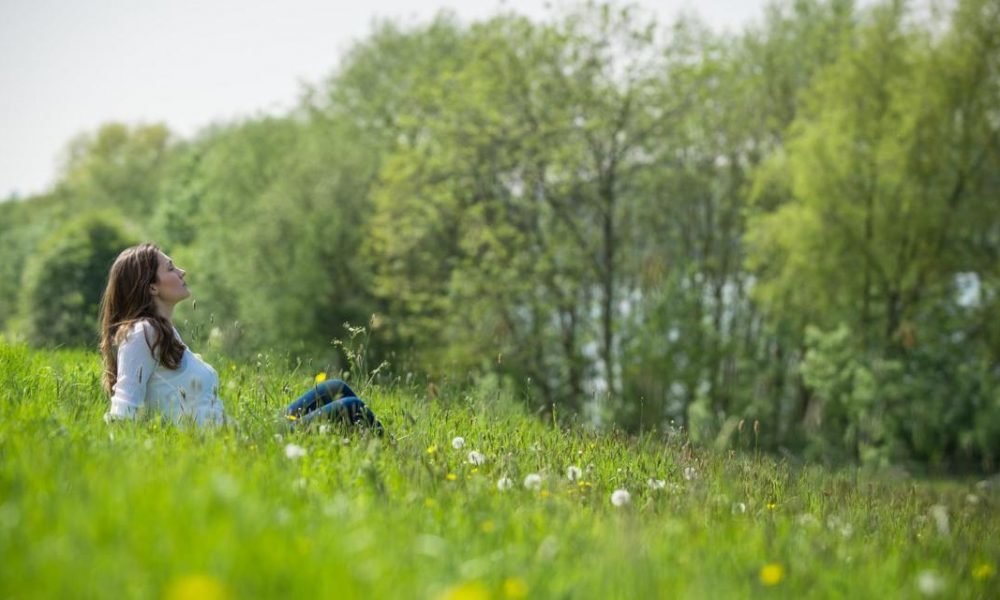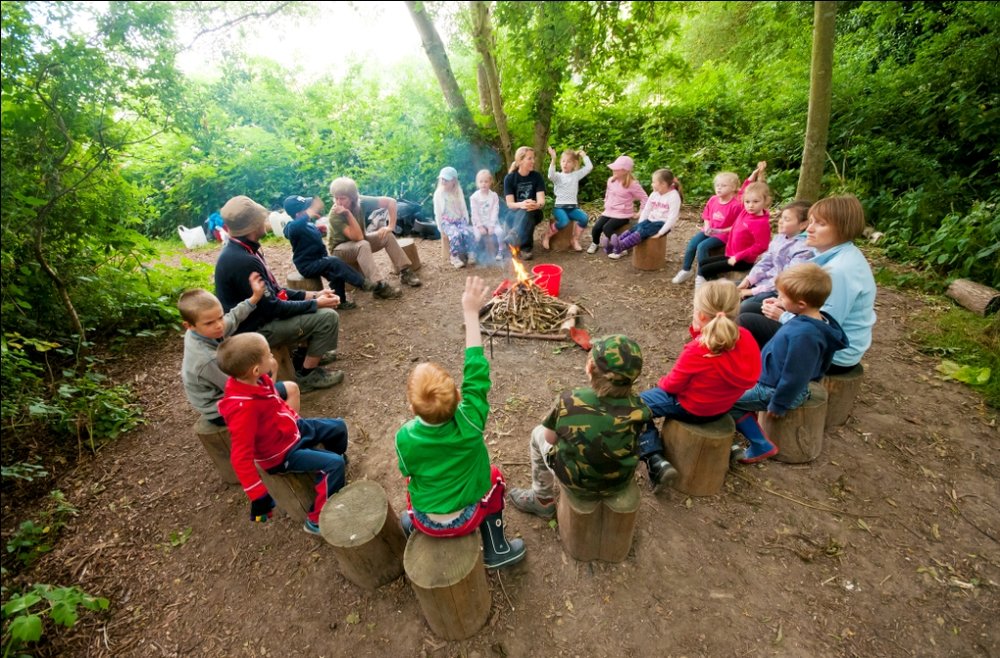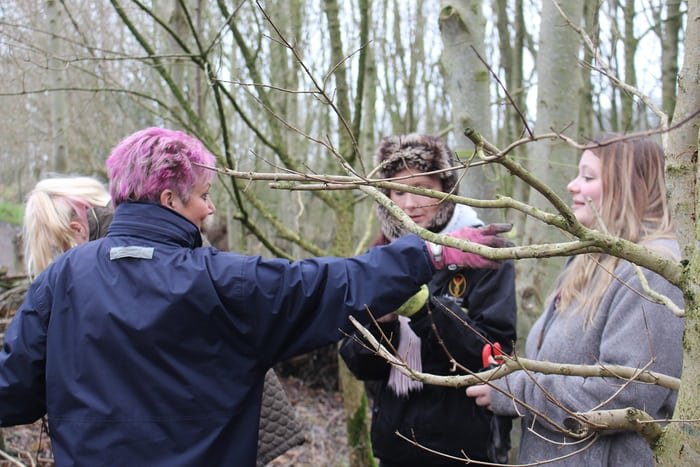
Studies Show Reconnecting With Nature Can Boost Your Mental Health

With the pile of demanding tasks, appointments, and meetings we need to deal at work, there’s no doubt we’ve been exposed to unimaginable levels of work stress and pressure. Aside from that, we’re forced to digest millions of information every single day in order to increase our productivity in work or to pass the upcoming exam. We also need to grind ourselves and compete with other commuters to avoid the hassle of being stuck in traffic, in the busy bustling streets of urban cities. And before we know it, the day is over and we go to bed late and exhausted, trying to have some sleep and prepare for the next day.
Unfortunately, we often finish our day pretty late because of our hectic schedule, which leads us to not having enough sleep and rest to face another day. This type of hectic and unhealthy lifestyle puts a tamper not only on our body (eating unhealthy foods and not working out) but most of all, it affects our mental health too. Every single day, our mind is forced to work until exhaustion. How can we unwind from grinding our day-to-day life and refresh our mind and body? The solution to that may lie in your reconnection with nature.
Studies show that reconnecting with nature can help boost your mental health.

139 People Volunteered on Wildlife Trusts Mental Health Research
The University of Essex conducted a study about the volunteers working in Wildlife Trusts, in which 95% of their households are people having poor levels when it comes to their mental health. While some of them are also showing signs of Alzheimer’s disease or Dementia. The program is schemed for the volunteers to stay for six weeks while cutting themselves off from the real and online world. They also exposed these 139 volunteers to various activities such as scrub clearance, tree planting, building bird tables, bug hotels, sowing seeds and growing food.
The Astounding Results of the Research Study
The research had also extended up to 12 weeks and the results show that about two-thirds of the participants (around 66%) have improved their behavior, health, and well-being in just a span of three months. The people had reported that nature gives them positive feelings and outlook in life, eliminating all the negativities they experienced while living in cityscapes. Their health had also improved as they weren’t exposed to many types of pollution and stress trigger factors. It also allowed them to live a healthy lifestyle since they have access to clean and green nature that enabled them to inhale fresh air. Aside from that, they’re also eating healthy foods straight from their grown gardens and organic animals. The different activities and modules they designed during the entire program also help their body to be more active.

The Participants Were Exposed to Various Physical Activities
Dominic Hudgins, which is the head of the Wildlife Trusts and also the head of the research conducted, said that the research shows how powerful can nature affect our mental health and well-being.
The evidence is loud and clear – volunteering in wild places while being supported by Wildlife Trust staff has a clear impact on people’s health; it makes people feel better, happier and more connected to other people.
“Participants also reported increases in their sense of connection to nature.” He further said.
This statement was seconded by Dr. Mike Rogerson, who was the head of the University of Essex. He said that the research was assessed using important health and well-being related measures.
“At a time when we are losing count of local and national-level health, wellbeing, loneliness, community, and NHS burden crises, engagement with the Wildlife Trusts’ volunteering activities can provide a much-needed antidote for individuals, local areas and the UK as a whole,” he said.

Reconnecting with Nature Helps Boost Your Mental Health and Wellbeing
He also reinstated that the Department of Health should model a nature program to use as one of the alternative methods or solutions to help boost the mental health of their patients.
“At a time when we are losing count of local and national-level health, well-being, loneliness, community, and NHS burden crises, engagement with the Wildlife Trusts’ volunteering activities can provide a much-needed antidote for individuals, local areas and the UK as a whole,” he said.
More in Mental Health
-
`
How to Get Into ‘Breaking Shape’ | A Guide for First-Timers
Breaking is not just a dance style. It is a full-body workout. To get into breaking shape, you will need more...
September 27, 2024 -
`
What to Do If You Mess Up Your Diet: A Recovery Guide
Everyone makes mistakes when it comes to diet. It’s natural to wonder what to do if you mess up your diet,...
September 19, 2024 -
`
Did Charles and Alyssa Break Up? The Signs That Have Fans Concerned
Did Charles and Alyssa break up? This question has taken over social media, sparking a wave of concern among the couple’s...
September 11, 2024 -
`
5 Essential Health Activities You Should Keep Track of Every Day
What should you track every day for health? Well, to maintain your well-being it is crucial to keep track of everyday...
September 6, 2024 -
`
Can You Work Out After Getting Blood Drawn?
A blood draw is a common procedure in healthcare, often used to monitor health or screen for various conditions. While it’s...
August 30, 2024 -
`
Does Mushroom Coffee Help You Lose Weight – Or Is It Just Hype?
Mushroom coffee has quickly become a buzzword in the wellness world, with enthusiasts praising its unique flavor and supposed health benefits,...
August 23, 2024 -
`
Looking to Work Out After Getting Tattooed? Here’s What You Should Know
Getting a new tattoo is exciting. But if you are a fitness enthusiast, you might be wondering, how long after a...
August 16, 2024 -
`
How to Lose Weight and Maintain Muscle
When aiming to shed excess fat while preserving muscle, it’s essential to strike a balance between cutting calories and sustaining physical...
August 8, 2024 -
`
6 of the Richest Female Rappers in the World
Who is the richest female rapper in 2024? Well, the hip-hop world has seen a surge in powerful female voices who...
July 29, 2024















You must be logged in to post a comment Login